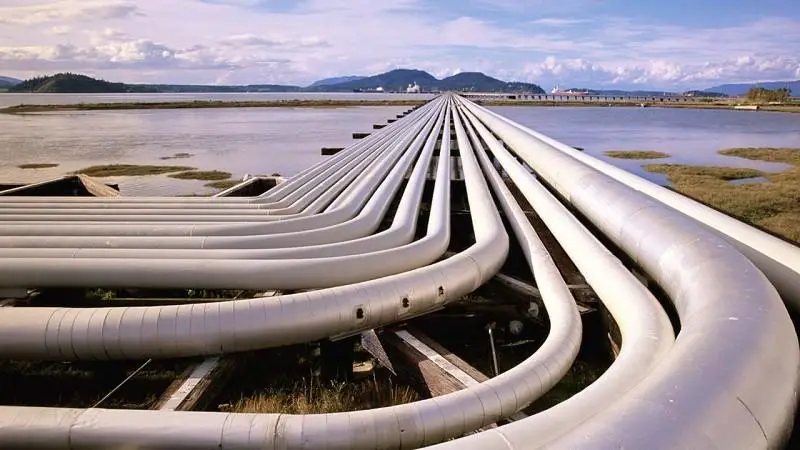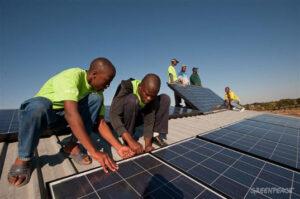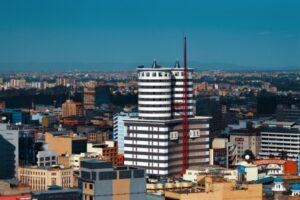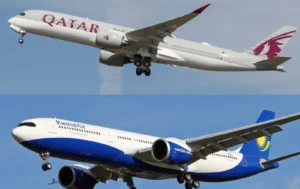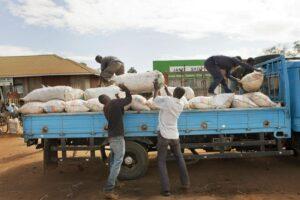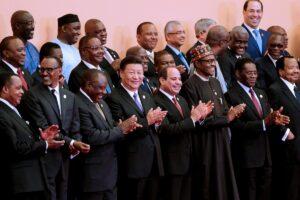- Africa’s new dawn: the rising role of digital and AI in agriculture
- Can Dangote Refinery Transform Africa Energy Ambition
- Gallup Survey: 80 per cent of Kenyan Workers Are Disengaged and Seek New Opportunities
- Madagascar Man Freed from 5KG Tumor After 15-Year Struggle
- How women in Africa are perceived and treated
- Sugar consumption in Kenya to Increase to 1.23 Million Tonnes
- Can Somalia and Turkey Oil deal Bring Change in Somaliland
- Remittances to Kenya dropped to $371.6 million in June, marking a six month low
Manufacturing
Africa has been hailed as the next frontier in the provision of global oil and natural gas resources, especially now in the wake of the ongoing Russia-Ukraine war.
This crisis has not only altered the global energy landscape, but also instigated an inflation in gas prices, given the former’s position in the hierarchy of major global producers. As sanctions continue to soar, Europe has embarked on a quest to find contingency energy supplies, as it seeks to minimize its dependency on Russia; which has already cut off gas supplies to countries like Finland, Poland and Bulgaria, over energy payment disputes.
Consequently, Africa’s gas resources have gained a newly found prominence, pertinently by the European Union (EU); owing to the continent’s rich endowment of oil and deep gas reserves. The mounting global demand for gas, has been pushing international energy companies to reconsider African projects. The numerous ongoing and upcoming oil …
However, all efforts have been directed in that sector to try and make it greener and cleaner. Among consumers, a major shift is now being witnessed with most of the industries investing in clean energy sources that are both affordable and sustainable.
Such initiatives have made Kenya be rated among the top countries that are implementing their nationally determined contributions that seek to cut greenhouse gas emissions in the country by 32 per cent by 2030.
The latest industry to have made noted efforts to transit to clean Energy is Bamburi Cement Factory situated in Bamburi Mombasa.…
- Varun Beverages has become one of the country’s biggest beverage firms in Zimbabwe
- Delta has had a firm grip on the Zimbabwean drinks market and is home to international brands of soft drinks and beers
- Varun is on an aggressive urban assault to capture more market share and challenge the drinks giant.
Varun Beverages has become one of the country’s bigger soft drinks firms in Zimbabwe within a relatively short period.
Bottlers of Pepsi, 7up and Mirinda brands, Varun has established itself as one of the soft drinks companies to reckon with in the soft drinks market.
This is an impressive achievement given it is going toe-to-toe with long-established Delta, Zimbabwe’s most prominent beverage firm with big brands such as Coca-Cola, Fanta and Sprite.
Since the colonial era, Delta has had a firm grip on the Zimbabwean drinks market and is home to international brands of soft …
Kenya has announced plans to revive small industries across the country, in a bid to spur value addition and market access for targeted products through projects led by the youth.
The Trade, Industrialization and Enterprise Development Principal Secretary Kirimi Kaberia said the ministry has completed mapping out villages and their unique products countrywide, according to Business Daily.
According to the PS, the Ministry is looking to attract more youth into manufacturing through cottage industries.
Kaberia said the government’s plan is to have functional industries in the next 12 months through transfer of resources in the rural areas.
“We want to have an environment where local people consume what they produce,” he said.
The plan, dubbed ‘one village, one product’, is part of Kenya’s Vision 2030.
Why Kenya’s manufacturing is uncompetitive
It is also part of the government’s plan of growing the contribution of the countries manufacturing to GDP from 11 …
Five years ago, 197 governments promised to limit the impacts of climate change. Today, we are still very far from realizing that promise, as climate change impacts continue unabated. No continent has more to lose from this inaction than Africa, from worsening health outcomes, the destruction of natural resources, landscapes, and biodiversity, to significant economic losses at the macro and micro levels. This is further compounded by weak policies and regulatory frameworks not suited to support nationally determined contributions (NDCs) to reduce CO2 emissions and adapt to climate change, as well as limited funding available to implement critical programs and projects.
Green finance has become more mainstream in recent years, with the emergence of the global green bond market that could be worth $2.36 trillion by 2023. However, only $2 billion worth of green bonds had been issued in Africa by Q4 of 2019, representing 17 issuances. Risk mitigation …
I am by nature an optimist. A long and challenging life has tempered that optimism with a large dose of realism but I am definitely a “glass half-full” kind of man. As a regular contributor to The Exchange I don’t really want to blame another contributor for tipping me over the edge into downright pessimism but, having read the excellent piece by Eric Kimunguyi entitled, “Europe taking on the world to lock out agriculture” I am not of good heart. In fact, I cannot remember a time when I have been less optimistic about the financial future of the world economy.
The world financial system is even sicker than the world’s population. The Covid-19 pandemic is still having devastating effects on human health and wealth around the world – some 18 months after it first appeared. The world’s leading economies are broken and are still printing money to subsidise their …
On Thursday, May 13, the Africa Centers for Disease Control and Prevention (Africa CDC) disclosed that African countries had acquired 38.03 million Covid-19 vaccines thus far.
For a continent with close to 1.5 billion people, the acquisition is at snail’s pace, sporadic and at best remains a lengthy process that may never be completed to successfully cover every African citizen in need of the vaccine.
Out of the 38 million doses, 22.4 million doses had been administered corresponding to a coverage rate of 1.48 per cent of the continent. Only five out of the 55 African nations had administered most of the doses of the Covid-19 vaccine respective to their populations.…
There are thousands upon thousands, if not millions, of African artifacts scattered all across Europe. According to the most commonly cited figures from a 2007 UNESCO forum, 90 per cent to 95 per cent of sub-Saharan cultural artifacts are housed outside Africa. Many, like the works from Benin, were taken during the colonial period and ended up in museums across Europe and North America.
Be they in national museums or private collections, African masks, paintings, carvings, sculptures, potteries—all ancient and priceless—are being held abroad, and the keepers refuse to return them.
For the purpose of formalities let us look at the arguments posed by museums. After all these are the places where the artifacts are on public display and clearly labeled, for instance, ‘Ancient Benin Bronze Axe 1897’ yet the piece is in a French museum and the museum will not release it back to the Kingdom of Benin—present day …
According to Brand Africa 100: Africa’s Best Brands 2020 survey, Africans prefer foreign brands over local ones. In 2011, the representation of African brands seemed very optimistic when they registered a 34% representation, but in 2020 it dropped to an all-time low of 13%.
< p class="fade">This is a worrying statistic as it may indicate that Africa is failing to meet the needs of its growing consumer market, which was worth $1.4 trillion in 2020. The AfCFTA if properly implemented will create an even bigger continental free trade zone with a potential market of 1.7 billion people. …





